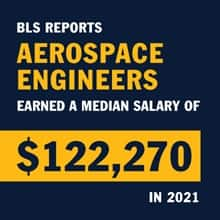
Asking ourselves the question, "What does an engineer in nuclear engineering do?" is a good way to start thinking. We think about the job description and responsibilities of nuclear engineers. Generally, they must be physically present in a lab, conducting research and analysis. These are just a few of the tasks that a nuclear engineering might need to fulfill. Continue reading to learn more. You will find the following information helpful in understanding the job description and the skills that you need to succeed.
Job prospects
A career in nuclear engineering can be lucrative and challenging. As the industry evolves, nuclear engineers may be able to find themselves in various roles. Many choose to work as project managers and supervisors. Others might go into sales. It doesn't matter which job you choose, it is important to keep learning and earning professional certifications in order to improve your career. There are great job opportunities for nuclear engineers, but it is important to understand that the job marketplace changes often. According to Bureau of Labor Statistics, the demand for nuclear engineering professionals could decline by 8 percent by 2020.

A BS degree in the relevant field is required to be a nuclear engineer. Candidates must typically have four years work experience. A few nuclear engineers go on to obtain a master's degree depending on their qualification. As an alternative, recent graduates can take part in the engineering internship exam. In this position, they work under the supervision of more senior nuclear engineers and gain on-the-job training.
Required skills
With average competition, the career outlook for nuclear engineers is good. If you have a degree and work experience in nuclear engineering, your prospects are excellent. During your early career, you may need to work in an office or in a nuclear power station. This is a dynamic field. There are many job opportunities in the nuclear industry, including those that do not involve the use of radiation or weapons.
Nuclear engineers, regardless of their location, must be detail-oriented as well as possess excellent communication skills. They must be able anticipate potential catastrophes and communicate well with others. They should also be able problem-solve and use analytical thinking. Nuclear engineers are expected to be very organized due to the fact that they deal with lots of specialized equipment. If you are driven and determined to succeed, you could become a nuclear engineering engineer.
Salary
For you to become a Nuclear Engineer, you will need to have a degree from an accredited college or university in nuclear engineering, four years work experience, and proof you have passed an examination. You may be able to gain valuable work experience through some institutions that offer cooperative education. Internships, workshops and internships are great ways to gain valuable work experience. There are also many nuclear engineering companies that offer internships in this field.

While the highest-paid nuclear engineers make more than $136,800 per year, the range can vary depending on where you are located and what industry you work in. However, the employment outlook for nuclear engineers is good, with the greatest potential for growth in research and development positions. The American Nuclear Society can provide information about the careers and pay ranges of different positions. They also provide information on the salary and employment situation in the nuclear sector.
FAQ
What is an Aerospace Engineer?
Aerospace engineer uses their knowledge of aeronautics, propulsion, robotics, and flight dynamics to design aircraft, spacecraft, satellites, rockets, and missiles.
An aerospace engineer might be involved with designing new aircraft types or developing new fuel sources.
What kinds of jobs are available if I am an engineer?
Engineers can find work in almost all industries, including manufacturing and transportation.
Engineers with specialized skills can find employment at organizations or companies that specialize in their field.
You might find electrical engineers working for medical device manufacturers or telecommunications companies.
Software developers could work for websites and mobile app developers.
Computer programmers could work for tech companies like Google or Microsoft, Apple, Amazon or Facebook.
Engineering What?
Engineering is, simply put, the application of scientific principles for useful things. Engineers use science and mathematics to create and construct machines, buildings, bridges or aircraft, and also robots, tools and structures.
Engineers are involved in many areas, including research and development, production maintenance, testing, quality assurance, sales, marketing management, consulting law, politics, finance and human resources administration.
Engineers have many responsibilities. They can design and build products, systems and processes; manage projects; perform tests and inspections; analyze data; create models; write specifications; develop standards; train employees, supervise workers and make decisions.
Engineers can choose to specialize in specific fields such as electrical, chemical or civil.
Engineers may choose to concentrate on specific areas of engineering such as aeronautics or biotechnology.
Statistics
- 2021 median salary:$95,300 Typical required education: Bachelor's degree in mechanical engineering Job growth outlook through 2030: 7% Mechanical engineers design, build and develop mechanical and thermal sensing devices, such as engines, tools, and machines. (snhu.edu)
- 8% Civil engineers solve infrastructure problems. (snhu.edu)
External Links
How To
How to use an Engineering Technical Pen
An excellent engineering technical pen should include:
-
A ergonomic grip
-
A comfortable writing surface (a rubberized grip would work best)
-
Access to ink cartridges easily
-
Enough space for erasing mistakes
-
Nuts of good quality
-
For long periods of time, ergonomics for long-term use
-
High visibility of the ink cartridge level
-
A low weight
-
An excellent price/value combination
These tools are best used correctly.